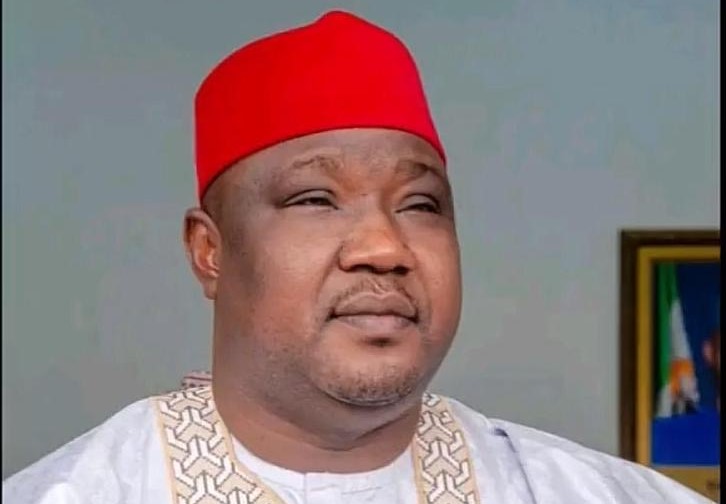FRESH revelations have emerged that appear to clear former Kano State Commissioner for Transportation, Alhaji Ibrahim Ali Namadi, of allegations of bribery and complicity in the controversial bail of an alleged drug trafficker, Sulaiman Aminu Danwawu.
The commissioner, who resigned his position last month after the submission of a government investigative panel’s report, was accused in sections of the media of collecting a $30,000 bribe to stand surety for Danwawu.
However, exclusive findings by News Point Nigeria, backed by testimonies from security agencies, court sources, and panel members, strongly suggest that the former commissioner acted merely out of goodwill and not for personal gain.
The storm began when court documents revealed that Namadi had sworn an affidavit of means and formally wrote to the Federal High Court, Kano, on July 18, 2025, offering himself as surety for Danwawu, who had been granted bail under strict conditions by Justice M.S. Shu’aibu.
The conditions required a serving state commissioner and a ₦5 million deposit into an interest-bearing account. Namadi’s decision to step in sparked outrage, with critics accusing him of undermining the state government’s anti-drug stance.
Speaking exclusively to News Point Nigeria, a senior official of the Department of State Services (DSS) dismissed the bribery allegations as “entirely false.”
“There was no monetary link to the commissioner’s action. We found no record of him receiving money or doing business with the suspect. He was introduced to the man by an ally and acted in good faith,” the official explained.
Similarly, a senior director at the NDLEA confirmed that Namadi had no history of drug-related offences or ties with known traffickers.
“Apart from his role in signing the bail papers, we have never had any issue with him. The stories of bribes or complicity are baseless,” the NDLEA source insisted.
A police officer who assisted the panel’s probe also corroborated these findings, stressing that Namadi acted more as a “Good Samaritan” than a conspirator.
The investigative panel, chaired by SSG Umar Farouk Ibrahim, concluded that while Namadi’s actions violated Kano’s anti-drug policy, there was no evidence of personal gain.
Key findings included:
Voluntary Bail Support: He applied to be surety on his own volition.
Affidavit of Means: He legally confirmed his eligibility as commissioner.
Policy Contravention: The act contradicted Kano’s zero-tolerance stance on narcotics.
No Financial Inducement: No record of money changing hands was found.
No Bail Payment: The ₦5 million deposit was based on the defendant’s affidavit, not the commissioner’s funds.
A retired civil servant and member of the panel described Namadi’s involvement as “a case of poor judgment rather than corruption.”
“He was careless as a public figure to bail someone he barely knew, but there was no evidence of bribery or business partnership. He acted as a friend of a friend, nothing more,” the source noted.
Governor Abba Kabir Yusuf, upon receiving the report, commended the panel for its objectivity and acknowledged Namadi’s decision to resign in the interest of public perception.
“Our administration is committed to justice and integrity. While the panel found no evidence of bribery, the commissioner’s choice was careless and against our anti-drug policy. His resignation was the right call,” the governor said.
In his resignation letter, Namadi maintained his innocence but conceded that public perception weighed heavily on his decision: “While I am innocent of any wrongdoing, I cannot ignore the weight of public perception. I take this step in the overriding public interest,” he declared.
The saga has stirred conversations on public morality, perception, and accountability in governance.
“This was less about corruption and more about judgment. The Ex-Commisoner just made a bad judgement but he is not corrupt. Public officers must always weigh the consequences of their personal choices,” noted a Kano-based political analyst.
The unfolding of fresh facts paints a different picture of the so-called “drug bail scandal.”
Far from being a conspirator in narcotics trafficking, Alhaji Ibrahim Ali Namadi emerges as a well-meaning but careless public official, who allowed goodwill to cloud better judgment.
As Kano reaffirms its zero tolerance for drug abuse, the case remains a cautionary tale for public officials on the fine line between personal acts of kindness and official responsibility.







